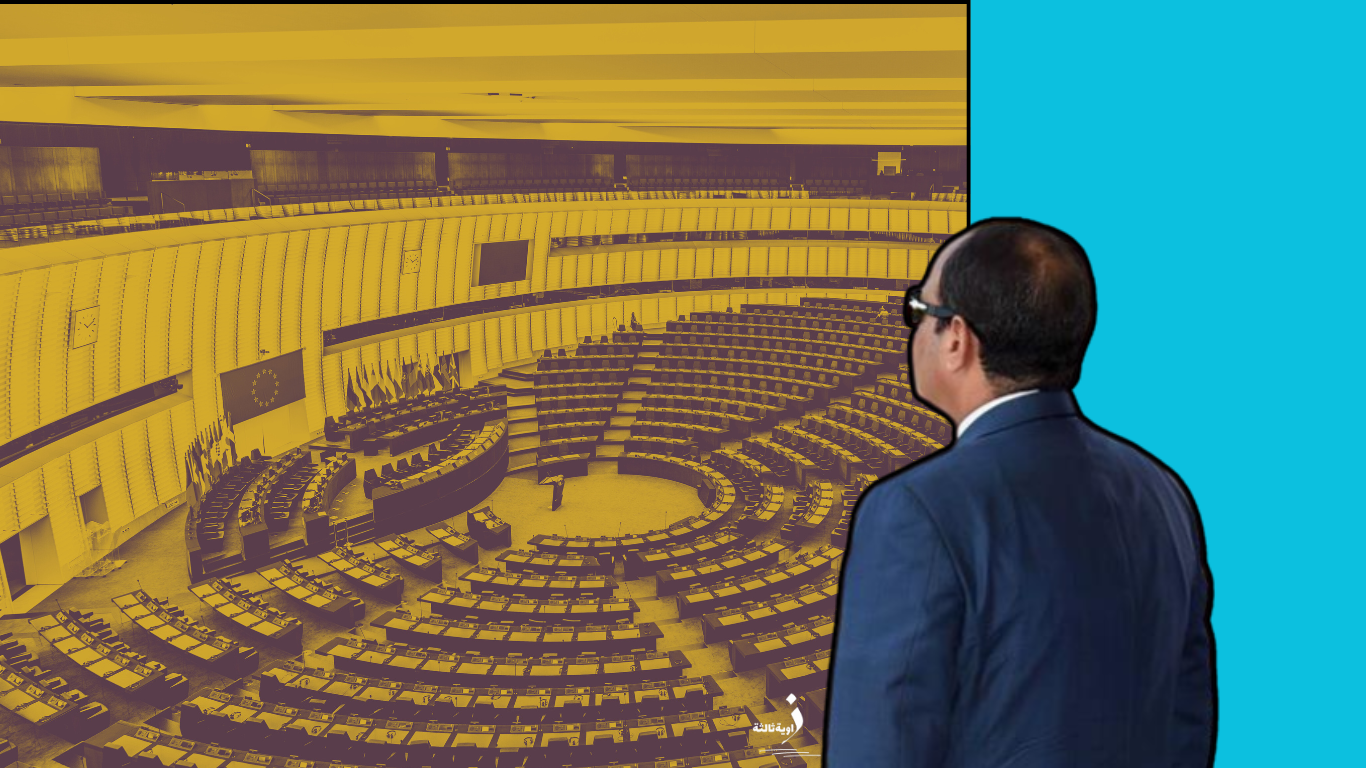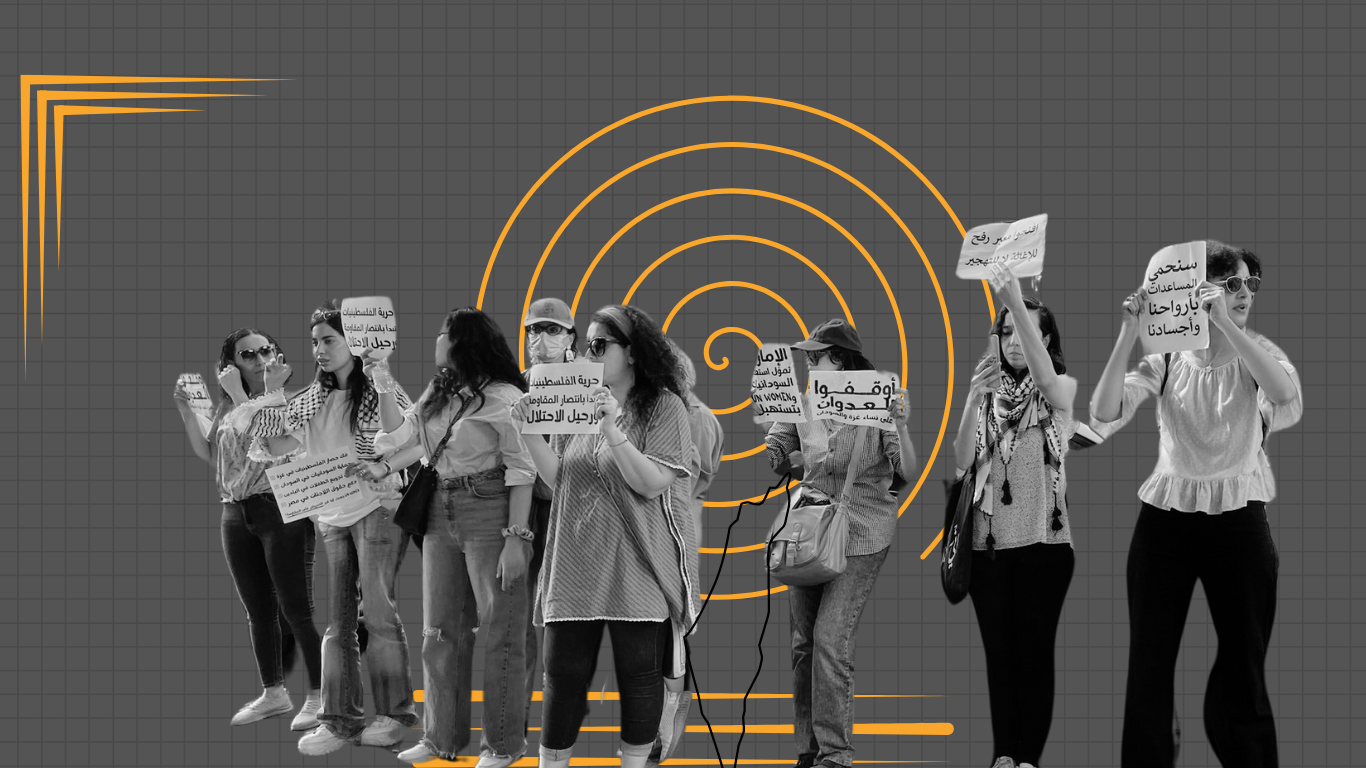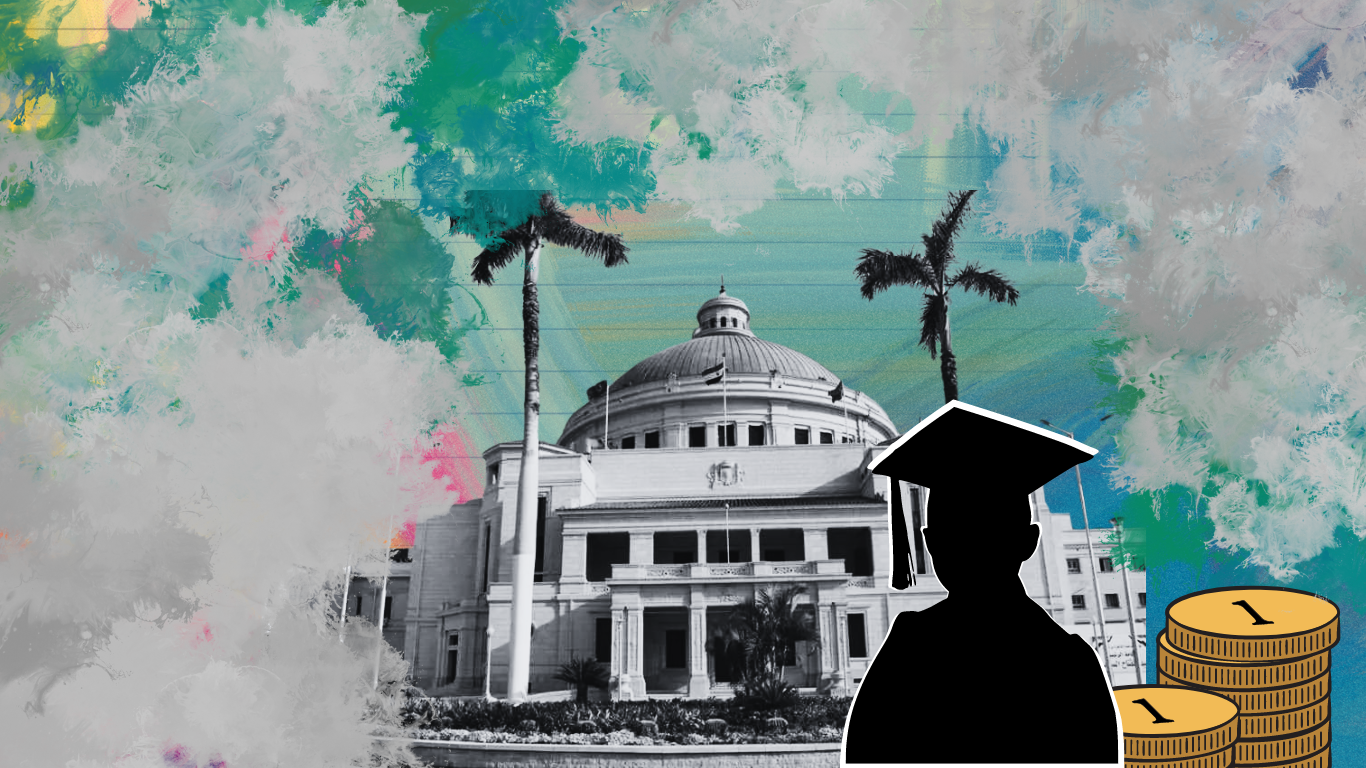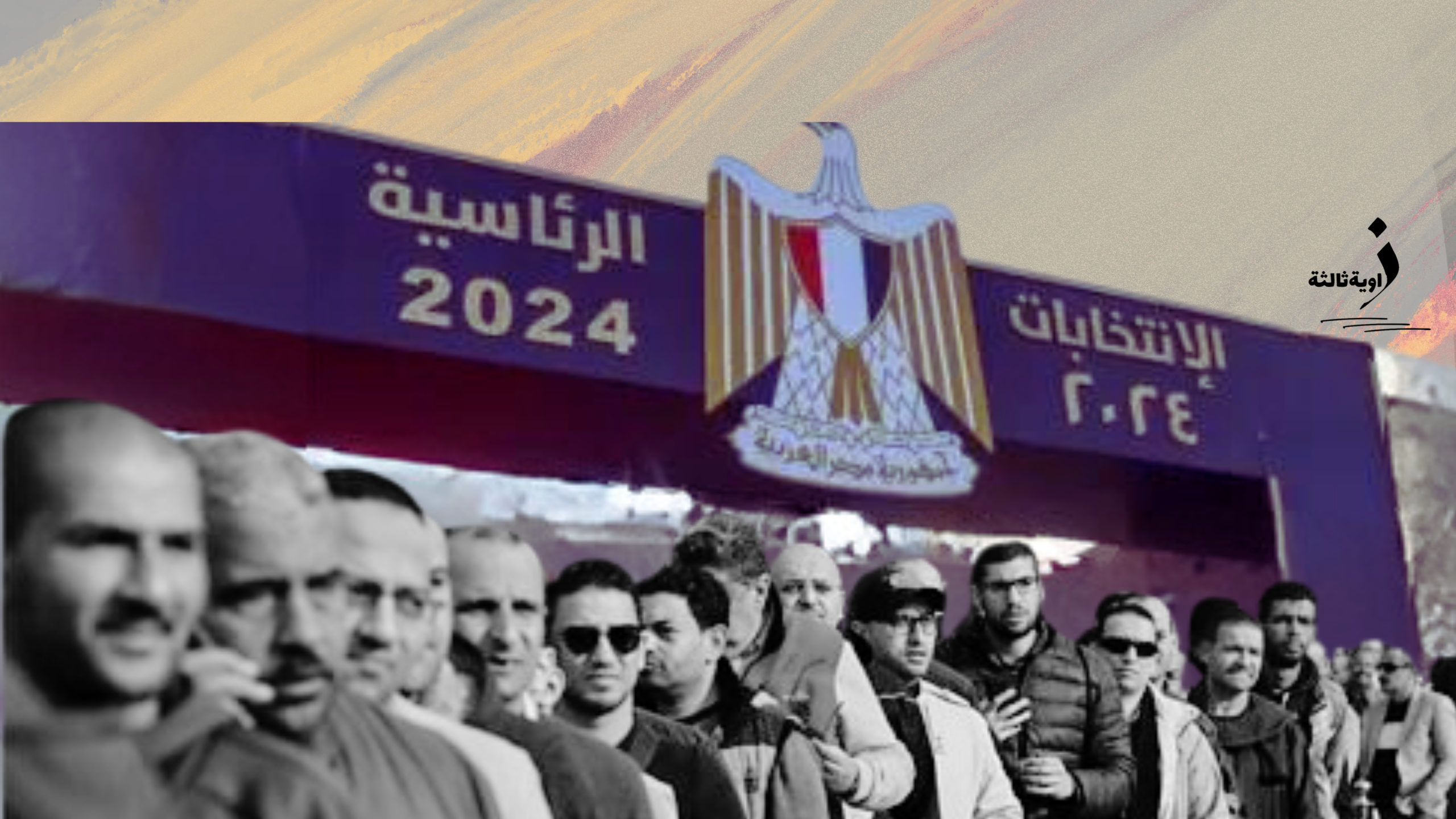On April 3rd, Egyptian President Abdel Fattah el-Sisi began a new term, his third in reality, and his second according to the amendment passed by the House of Representatives on April 16th, 2019, to Article 140 of the 2014 constitution. This amendment extended the presidential term from four to six years, applying to President Sisi’s second term that began in 2018, and allowing him to run for another term of six years after its completion, potentially keeping him in office until 2030. Sisi was first elected president in 2014 and re-elected for a second term in 2018, winning by a landslide after elections held at the end of last year. These elections met all the conditions of democratic elections in form, with opposition party candidates running against him, but raised significant questions about their competitive nature, a fundamental requirement for them to be recognized as democratic elections, along with the controversy surrounding the constitutional amendment under which the last elections were conducted.
In terms of form and procedures as well, the constitutional amendments, which included provisions regarding the presidential term and its conditions, received the support of a two-thirds majority of the members of the House of Representatives, with 531 members out of a total of 554 attending the final voting session, while 22 members voted against, and only one member abstained. Additionally, the amendments were approved by a majority of voters after being put to a public referendum in late April 2019. However, the context in which these amendments were passed and the justifications given to legitimize them raise a debate about the continued postponement of the democratic aspirations sought by political and social forces within Egypt. Moreover, the precedents of constitutional amendments regarding presidential “extensions” raise concerns among many observers who do not rule out another constitutional amendment guaranteeing the current president indefinite terms, potentially closing the door indefinitely to the possibility of political change through elections, negatively impacting the prospects of achieving a democratic transition in Egypt in the coming six years, especially given regional and international developments suggesting that stability will take priority with the interest and focus of supporting and influential international and regional powers, particularly as their enthusiasm for democracy in general diminishes, and their belief in democracy as an optimal system of governance capable of dealing with crises and challenges facing many countries in the world declines.
![]()
Stalled or Captive: Transition to Democracy in Egypt
The developments in the subsequent years following the January 25, 2011 revolution provided an opportunity to test the hypotheses upon which the premise that democratic transition in Egypt is stalled was based. This premise was put forth by the late Egyptian thinker, Mohamed El-Sayed Said, in his book published by the Cairo Institute for Human Rights Studies in 2006 titled “Stalled Democratic Transition in Egypt”. Many observers of the situation in Egypt agree with this view, which is also adopted by circles within the ruling elite, who still seem adamant in their belief that the people are not yet ready for democracy, particularly after the experience of the parliamentary elections in 2011 and the presidential elections in 2012, which resulted in successive crises culminating in widespread protests in mid-2013 that led to the overthrow of the Muslim Brotherhood’s rule and the elected president affiliated with the group. This experience solidified in the minds of wider segments of the elite and the general public the notion that the people are not yet qualified for democracy, given the political situation’s lack of adequate mechanisms for this democratic transition due to the near-total absence of societal engagement in political matters, the weakness of civil society organizations, the stunning contraction of the political elite’s size and activity, and the marginalization and subordination of the intellectual class, especially those engaged in politics, all contributing to a lack of the necessary impetus for transitioning to democracy.
The justifications presented by several writers and intellectuals for these amendments, revealing concerns and fears about the consequences that may result from a change in leadership, even through elections, on stability, suggesting that achieving stability is contingent upon the president remaining in power for life. They imagine that electing another president entails economic and security risks aimed at undermining the state. Moreover, these justifications and the amendments passed reflect a deep conviction within the government, and perhaps among wider sectors of intellectuals and the general public, that the country is not prepared for broad political reforms that might lead to general elections at all levels, ensuring genuine representation and introducing changes to the political rules, despite acknowledging the country’s need for political reforms, which may be necessary to provide mechanisms to prevent social and political explosions beyond control. The paradox lies in the continued mismatch of the political situation with the reforms being implemented to address structural imbalances in the economy, perhaps because these reforms and their ensuing drastic social changes would impact the stability and prosperity of wide sectors of society, which suffer from these policies. The power’s realization of this reality in Egypt is the main reason for its belief in the existence of lurking entities that could exploit political activism to serve their goals, and its firm conviction that widespread political openness poses a danger to society and the state, given the deterioration of economic, social, and cultural conditions reflected in poverty levels.
Estimates from the Central Agency for Public Mobilization and Statistics indicate an increasing percentage of the population at risk of poverty and rising poverty thresholds due to record inflation levels, currency devaluation, declining education levels, and illiteracy, factors that facilitate manipulation of the democratic process and elections. The authority relies on suppressing political opposition and social protests through security mechanisms. These transformations indicate that we face a structural crisis affecting the ruling elite and political opposition alike, not merely a process confined by the authority. This structural crisis manifests in the severe weakness experienced by political parties in Egypt in general, particularly opposition parties, their inability to find solutions and proposals requiring the political will of the authority, and their inability to convince the authority of the seriousness of continuing current conditions and policies on stability, lacking tools to escalate popular pressure on the authority, communication tools for their policies and programs, and lacking institutional development reflecting a low level of experience in political practice. Furthermore, public opinion polls conducted by the government and various agencies from time to time reassure it, demonstrating the widespread conviction among sectors of the public of the futility of democracy, directly linked to meeting citizens’ basic needs, such as livelihood requirements, security, and stability.
This crisis is exacerbated by regional and international developments prioritizing stability over pressure for democratic political reforms, engaging in negotiation processes and direct pressure to secure the interests of regional and international external powers through governments, which may come at the expense of local social sectors and economic forces. Subsequent developments during the past six months reveal the sole constant in the approach of the United States and its European allies, which is readiness to work with any party in Egypt in power because of their strong interests in Egypt and the vital security partnership essential for combating violent extremists and containing Iran.
The peace between Egypt and Israel is undoubtedly a cornerstone of regional and Israeli security. Despite the succession of leadership in power in Egypt since the overthrow of President Hosni Mubarak, these leaders attempted to grant privileges to Egypt’s allies and contain or exclude its enemies, supporting any president capable of establishing security, stability, and preventing the country from sliding into chaos.
![]()
Democracy and Stability
There have been radical transformations in the structure of political systems, which have acquired new tools to impose control and surveillance over citizens at a lower cost. These changes have altered the nature of political stability, which rests on two fundamental pillars: the imposition of control and coercion, and consent. This meant that only an open and pluralistic system could gather citizens and persuade them to make significant and enduring decisions for political and economic reform. Stability is affected when either of these pillars is disrupted. Focusing on these pillars shifts the debate about democracy, prompting a reconsideration of its meaning and importance beyond mere electoral processes, crucial as they are. Ultimately, democracy means the peaceful transfer of power without bloodshed, making it a fundamental mechanism for organizing competition or conflict over power, by returning sovereignty to its true owner—the people who periodically empower those they deem most capable of managing their affairs under limited, time-bound mandates. This can only be achieved through constitutional arrangements that establish the separation of powers and mutual oversight between them, constrain authority, expand freedoms, and enforce the rule of law, which means subjecting everyone to its authority.
Based on this principle, repeated amendments to constitutions to expand executive powers at the expense of other authorities, limiting citizen guarantees, or emptying constitutional principles through delaying legislation that ensures these rights and protections, undermine the fundamental aspects of personal freedom and the presumption of innocence guaranteed by the current constitution and Egyptian criminal procedure law. These laws conflict with the purpose of the constitution and other legislation that restrict freedom of opinion, expression, and organization, and expand the grounds for pretrial detention, undermining constitutional guarantees and protections for personal freedom, presuming innocence for the accused.
The assumption that practicing democracy in underqualified societies undermines political stability conceals the fact that stability is fundamentally achieved through respect for the constitution, its principles, and laws. In reality, executive power responsible for law enforcement and constitutional adherence is the primary source of these violations when decisions and actions infringe upon fundamental rights enshrined by the constitution, treaties, and international covenants.
Instead of undertaking legislative reforms to rectify these flaws, authorities exploit the imbalance of power in their favor to enact legislation that undermines these guarantees, eroding the foundation upon which law is built—achieving justice for citizens, societal and political stability. Such practices have negatively impacted living standards, education, healthcare, and employment opportunities, where freedoms have been absent, genuine political parties have been eliminated, and the political landscape has favored more authoritarianism and suppression of freedoms. This weakens public belief and trust in democracy, leading to a leaning towards other, often violent, forms of expression of rejection and discontent.
Researchers Frank Carsten and Carl Biekmann addressed this problem through their introductory book on the “Beyond Democracy” project, posing the question: Why doesn’t democracy lead to unity, prosperity, and freedom, but instead results in instability, lack of control and oversight over public spending, and an expansion of authoritarian governance—a stark contrast to democratic rule and accountability?
The growing general trend of skepticism and rejection of democracy, and even hatred towards it, is likely to encourage the current system in Egypt to continue with its established and tried methods of governance. This is aided by the increasing problems faced by democratic nations in general, including established democracies, such as citizen marginalization, low public participation, declining party membership, corruption, and the dominance of rulers’ decisions over the choices of the people. External forces also interfere, as seen in handling the recent economic crisis in Greece, and the Western democratic systems’ approach to foreign policy issues like the Israeli aggression against Palestinian civilians in Gaza or the Iraq invasion. These incidents have led to a loss of confidence in democracy, alongside the emergence of new issues like the relationship between economy and governance, climate change, and counter-terrorism measures that disregard fundamental democratic principles, highlighting the significant gap between the ideal of democracy as it has evolved in diverse political and social environments and the actual policies, practices, and performance of democratic systems.
It may be difficult to imagine Egypt’s democratic development mirroring the European model, which views democracy as achieving equality, human rights, and peace—achievements that enabled European societies to rebuild after two world wars. However, steps must be taken to provide the necessary conditions to speak about a democratic future, whether in the remaining period of Sisi’s rule under the current constitution or in any other political development.
The parties engaged in Egypt’s political system, including parties, institutions, strategic elites, and competing and conflicting elites, must work to reformulate the social contract after the dissolution of the social contract that occurred over the past decades, where authoritarian and comprehensive systems of governance prevailed. Economic stability was achieved at the expense of deep structural reforms, and security stability at the expense of freedoms and rights. The exacerbation of unemployment levels led to further entrenched corruption and despair among youth, with a lack of effective initiatives to escape this situation, coupled with the realization that this fragile stability does not provide a decent life, leading to marginalization and exclusion from participation.
The system must acknowledge that continuing with the current governance formula, compounded by transformations resulting from the entanglement of political matters with religion, resorting to violence taking dangerous terrorist dimensions, accumulating political and social problems, intensifying the impasse in the path of change and reform, and declining confidence in the future, especially among youth—all these factors increase foreign and regional interventions. Achieving this acknowledgment is a necessary condition for initiating a political reform process that opens the door to a transition towards democracy aligned with economic reform plans and the radical changes they entail.
Opinion articles do not reflect Zawia3.












